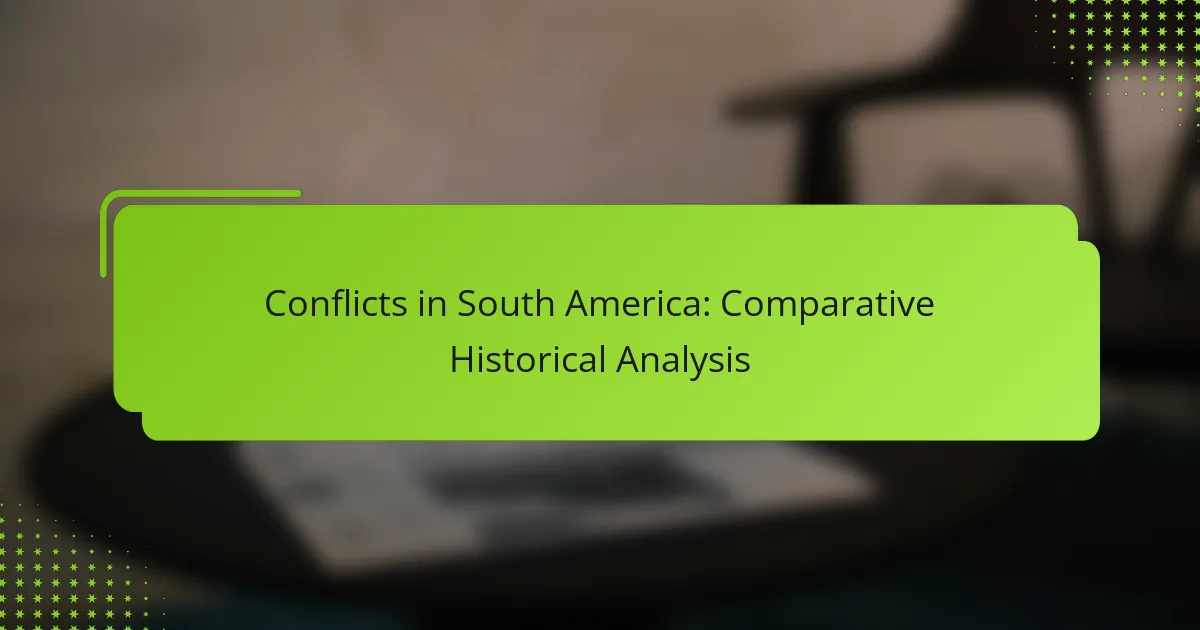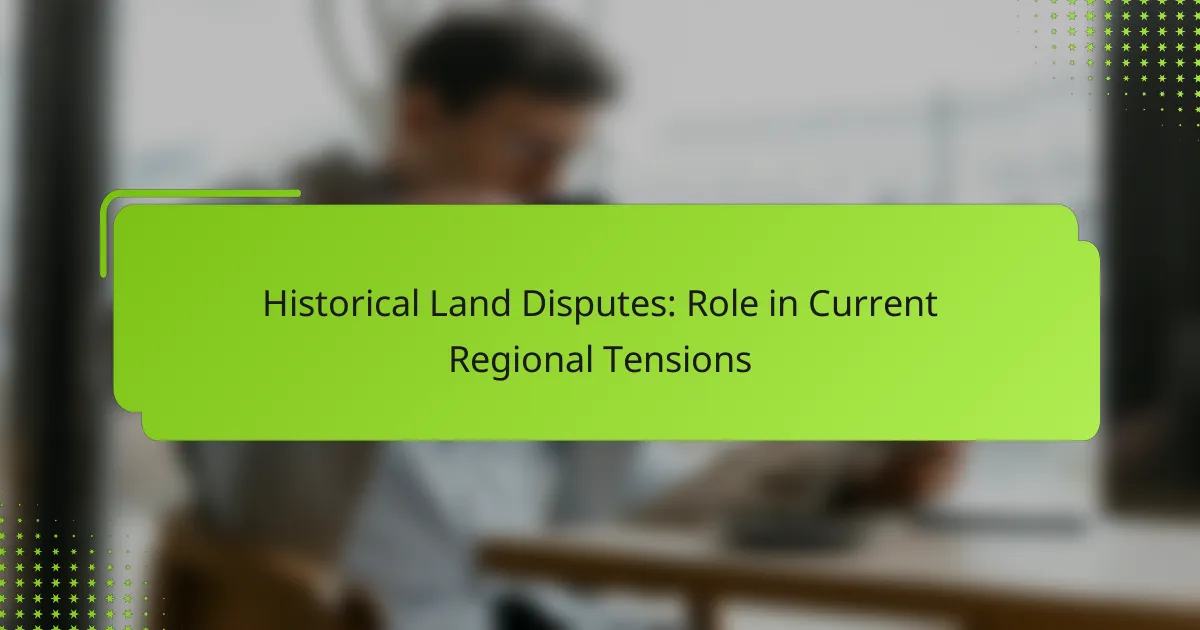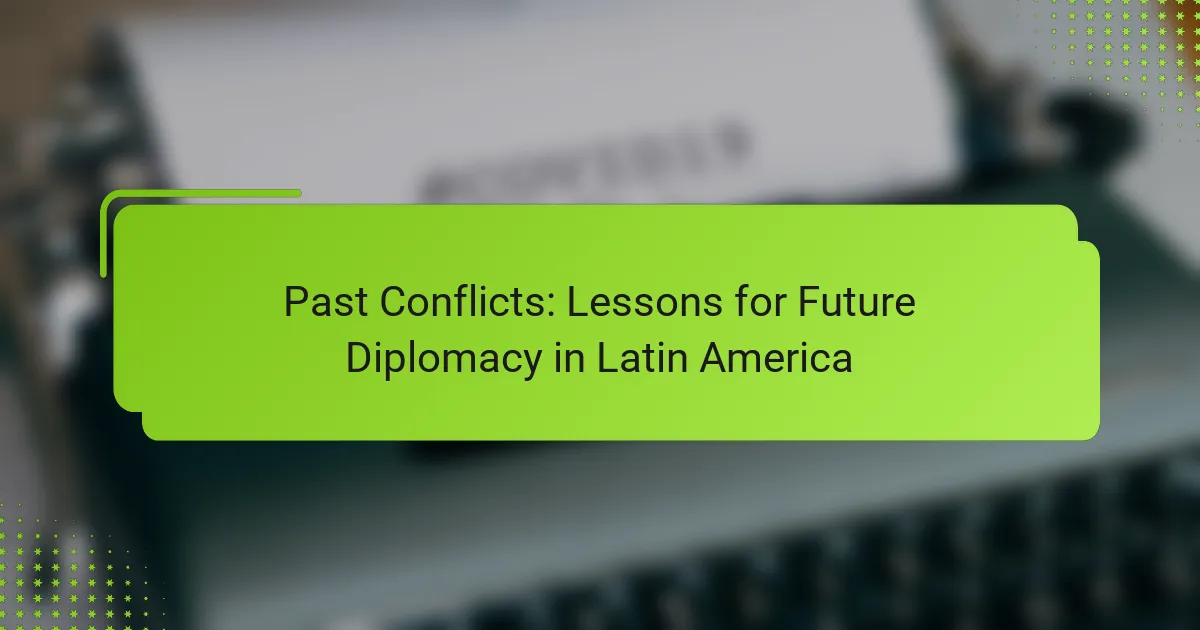Colonial history has a profound impact on modern conflicts in Bolivia, as it has entrenched inequalities in land ownership, ethnic relations, and resource management. The legacy of Spanish colonization established social hierarchies and economic disparities that persist today, fueling tensions among various groups. Indigenous populations, historically marginalized, continue to advocate for their rights and representation, highlighting the ongoing struggles for political influence and cultural recognition in contemporary Bolivian society.
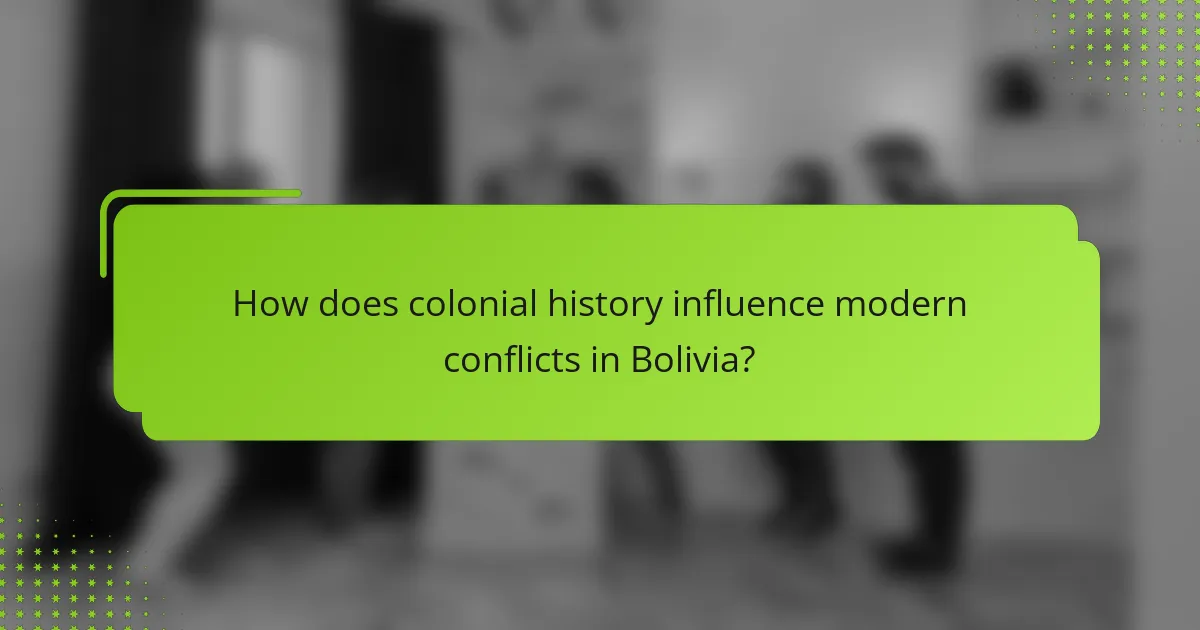
How does colonial history influence modern conflicts in Bolivia?
Colonial history significantly shapes modern conflicts in Bolivia by perpetuating inequalities in land ownership, ethnic relations, and resource management. The legacy of colonialism has created deep-seated tensions that continue to affect social and political dynamics today.
Historical land disputes
Land disputes in Bolivia trace back to colonial times when indigenous populations were dispossessed of their territories. Today, these historical grievances manifest in conflicts over land rights, particularly between indigenous communities and agricultural or mining interests. The struggle for land restitution remains a critical issue, with many indigenous groups seeking recognition of their ancestral claims.
Recent legal frameworks have attempted to address these disputes, but implementation often falls short. For instance, the 2009 Constitution recognizes indigenous land rights, yet conflicts persist due to inadequate enforcement and competing interests from private enterprises.
Ethnic tensions
Ethnic tensions in Bolivia are deeply rooted in the colonial era, where indigenous peoples were marginalized and discriminated against. This historical context has fostered a sense of identity among indigenous groups, leading to demands for greater political representation and cultural recognition. The rise of indigenous leaders in politics reflects a shift towards addressing these long-standing grievances.
However, these tensions can also lead to conflict, particularly when policies favor one group over another. Efforts to promote inclusivity must navigate the complexities of Bolivia’s diverse ethnic landscape to avoid exacerbating divisions.
Resource control
Control over natural resources in Bolivia is another area where colonial history plays a crucial role. The extraction of resources like lithium, natural gas, and minerals often involves conflicts between the state, multinational corporations, and local communities. Indigenous groups frequently argue that they should have a say in how these resources are exploited, given their historical ties to the land.
Negotiating resource management agreements remains a contentious issue. While the Bolivian government has made strides in recognizing indigenous rights, the challenge lies in balancing economic development with social equity and environmental sustainability. Clear frameworks for consultation and benefit-sharing are essential to mitigate conflicts over resource control.
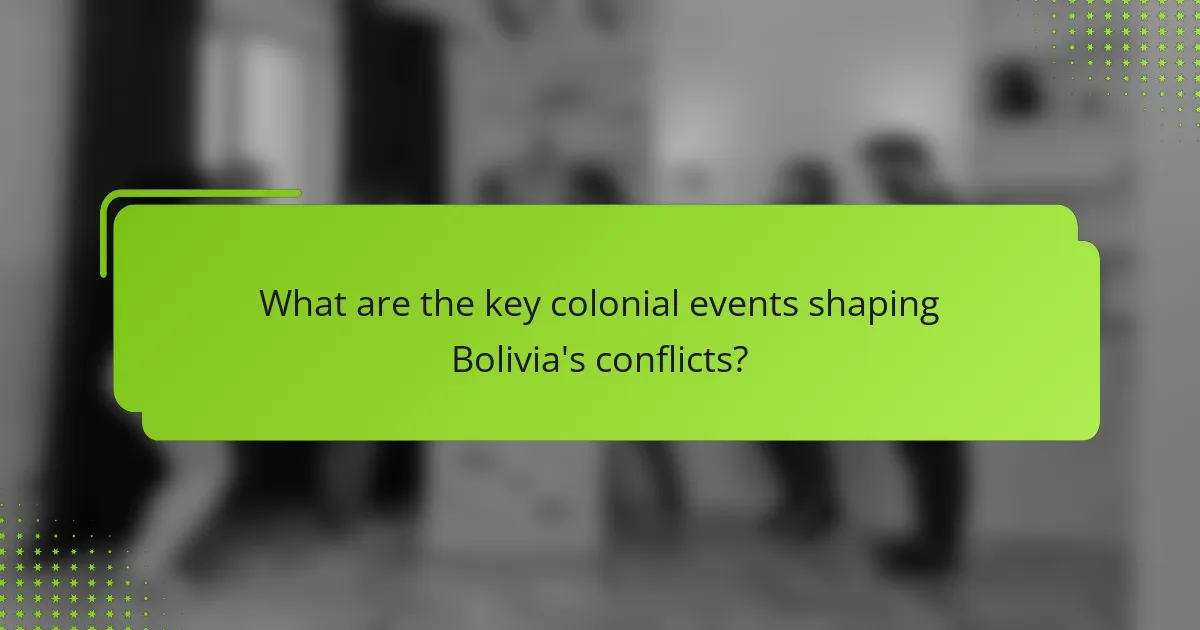
What are the key colonial events shaping Bolivia’s conflicts?
Key colonial events in Bolivia, particularly the Spanish conquest and subsequent colonization, laid the groundwork for many modern conflicts. These historical moments established social hierarchies and economic disparities that continue to influence Bolivian society today.
Spanish conquest and colonization
The Spanish conquest of Bolivia began in the 16th century, leading to the establishment of colonial rule that lasted for nearly three centuries. This period saw the exploitation of indigenous populations and resources, creating deep social divisions and resentment that persist in contemporary Bolivia.
Colonization imposed European cultural norms and economic systems, often disregarding indigenous traditions and governance. The forced labor systems, such as the encomienda, contributed to significant demographic changes and economic inequalities, laying the foundation for future conflicts over land and rights.
Independence movements
The struggle for independence in Bolivia was marked by a series of uprisings throughout the early 19th century, culminating in a successful revolt against Spanish rule in 1825. These movements were fueled by the desire for self-determination and the rejection of colonial oppression, but they did not resolve underlying social tensions.
Post-independence, Bolivia faced challenges in establishing a cohesive national identity, as various groups sought power and representation. The legacy of colonialism continued to influence political dynamics, leading to ongoing conflicts related to ethnicity, land ownership, and resource management that are still relevant today.
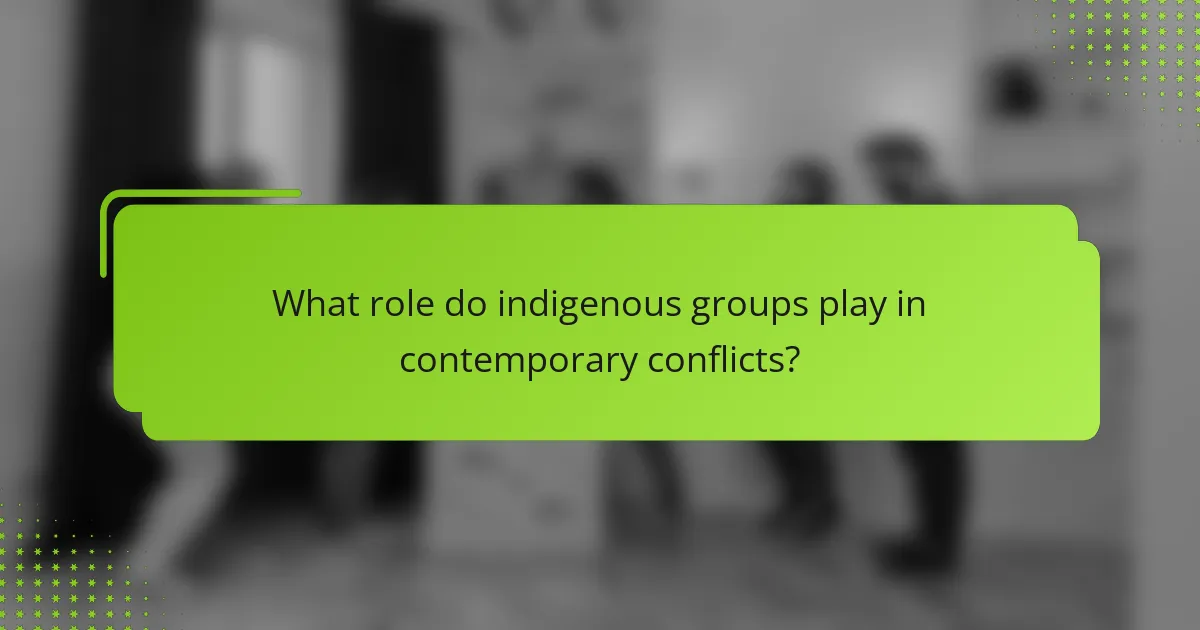
What role do indigenous groups play in contemporary conflicts?
Indigenous groups in Bolivia play a crucial role in contemporary conflicts, primarily advocating for their rights and representation. Their historical marginalization has led to ongoing struggles for political influence, land rights, and cultural recognition.
Political representation
Indigenous groups seek greater political representation to influence decision-making processes that affect their communities. This includes pushing for seats in legislative bodies and ensuring that their voices are heard in national policies. For example, the Plurinational Legislative Assembly has provisions for indigenous representatives, but many argue that these measures are insufficient.
Efforts to increase political representation often face challenges, such as systemic discrimination and a lack of resources. Indigenous leaders are working to build coalitions with other marginalized groups to strengthen their political power and advocate for more inclusive governance.
Land rights activism
Land rights activism is a significant focus for indigenous groups in Bolivia, as ancestral lands are often threatened by mining, agriculture, and urban development. These communities assert their rights to land based on historical claims and cultural significance, which are often overlooked by the government and private enterprises.
Activists engage in protests, legal battles, and negotiations to secure land titles and protect their territories. Successful movements have led to the recognition of indigenous land rights in some areas, but conflicts continue, particularly in regions rich in natural resources. Collaboration with environmental organizations can enhance their efforts and raise awareness about the importance of preserving indigenous lands.
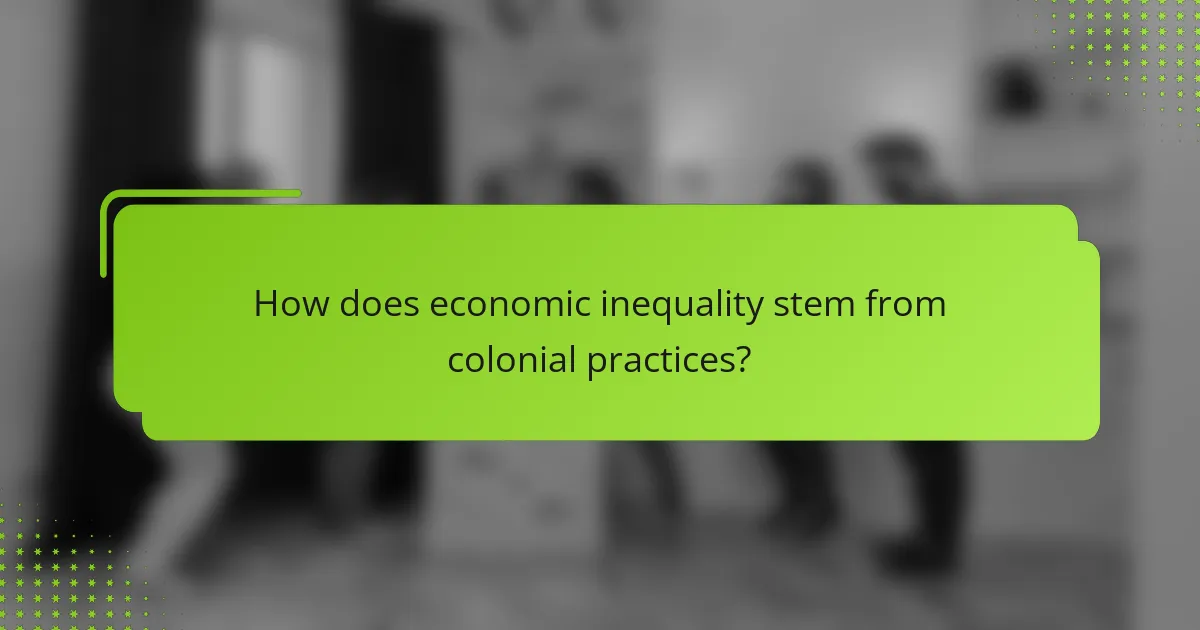
How does economic inequality stem from colonial practices?
Economic inequality in Bolivia has deep roots in colonial practices that established a hierarchy favoring European settlers over indigenous populations. These historical injustices created systemic barriers that persist today, affecting wealth distribution and access to opportunities.
Wealth distribution disparities
The wealth distribution in Bolivia reflects significant disparities that originated during the colonial era. Land ownership was concentrated in the hands of a few, primarily descendants of colonizers, while indigenous communities were often relegated to subsistence farming on marginal lands.
Today, this legacy continues, with a small percentage of the population controlling a large portion of the nation’s wealth. Efforts to redistribute land and resources have been met with resistance, making it challenging to achieve a more equitable economic landscape.
Access to education and resources
Access to education and resources in Bolivia is heavily influenced by historical inequalities established during colonial times. Indigenous populations often face barriers to quality education, which limits their ability to improve their socio-economic status.
Many rural areas lack adequate educational facilities and resources, perpetuating cycles of poverty. Initiatives aimed at improving educational access for marginalized communities are crucial for addressing these disparities and fostering long-term economic growth.
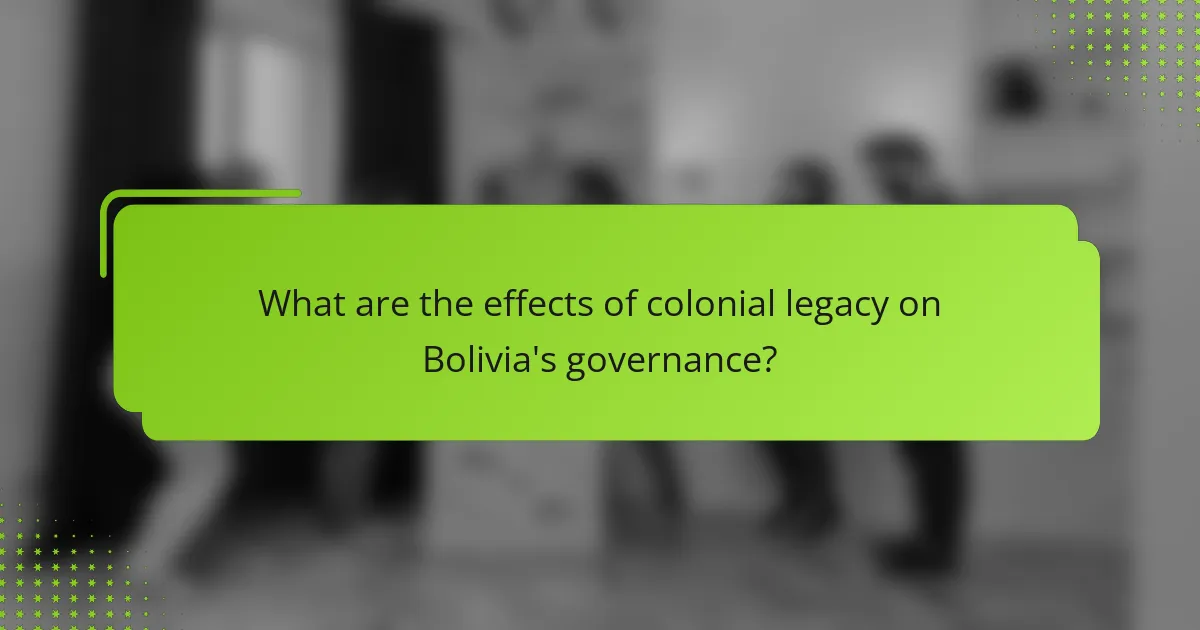
What are the effects of colonial legacy on Bolivia’s governance?
The colonial legacy in Bolivia significantly influences its governance, contributing to persistent issues such as corruption and ineffective policy-making. These historical factors shape the political landscape, often hindering democratic processes and equitable governance.
Corruption and power dynamics
Corruption in Bolivia can be traced back to colonial times when power was concentrated in the hands of a few, creating a culture of favoritism and nepotism. This historical context fosters a political environment where corrupt practices are often overlooked or normalized, undermining public trust in government institutions.
Power dynamics in Bolivia are heavily influenced by ethnic and social hierarchies established during colonial rule. Indigenous populations, historically marginalized, continue to face challenges in accessing political power, which perpetuates inequalities and affects governance quality.
Policy-making challenges
The colonial legacy complicates policy-making in Bolivia by embedding systemic biases that favor certain groups over others. Policymakers often struggle to address the diverse needs of the population due to entrenched interests and historical grievances that influence decision-making processes.
Additionally, the lack of inclusive dialogue in policy formulation leads to ineffective solutions that fail to address the root causes of social and economic issues. Engaging with a broader range of stakeholders, including indigenous communities, is essential for creating policies that reflect the needs of all Bolivians.
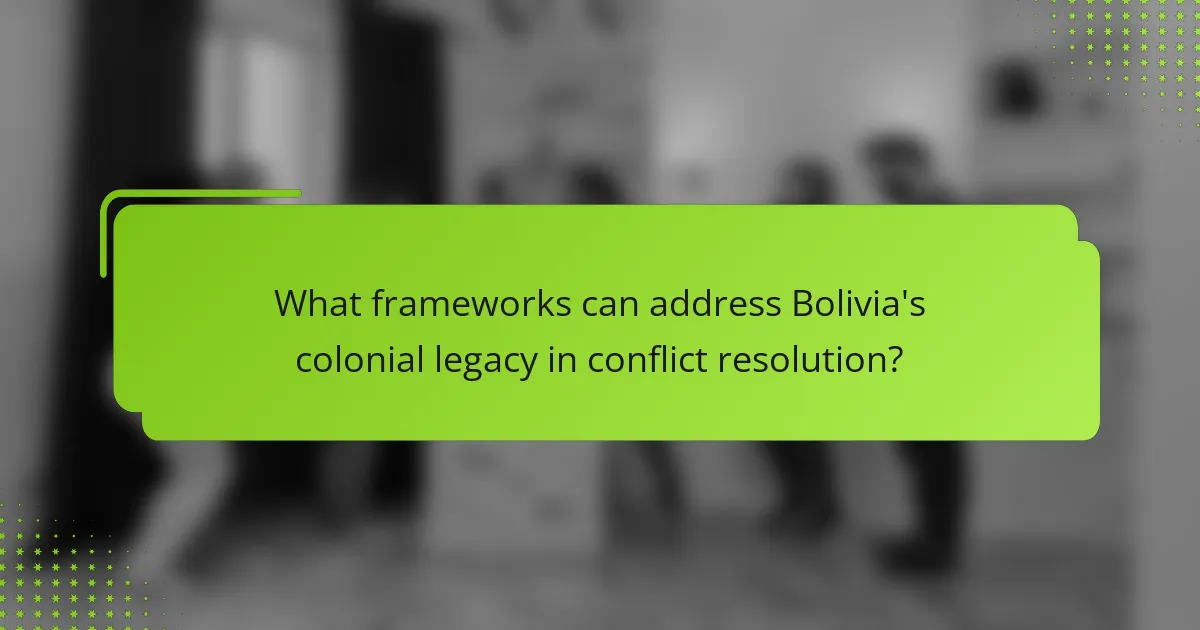
What frameworks can address Bolivia’s colonial legacy in conflict resolution?
Frameworks that address Bolivia’s colonial legacy in conflict resolution focus on promoting inclusivity and healing historical wounds. These frameworks aim to create equitable systems that recognize the diverse cultural identities and experiences within Bolivia.
Inclusive governance models
Inclusive governance models are essential for addressing Bolivia’s colonial legacy by ensuring that all ethnic and cultural groups have a voice in decision-making processes. These models often involve participatory mechanisms that allow marginalized communities to engage in political dialogue and policy formulation.
For instance, implementing community councils that represent various indigenous groups can help in creating policies that reflect their needs and perspectives. This approach fosters trust and cooperation among different societal segments, which is crucial for long-term stability.
Restorative justice approaches
Restorative justice approaches focus on healing rather than punishment, making them suitable for addressing the impacts of colonialism in Bolivia. These methods encourage dialogue between victims and perpetrators, aiming to restore relationships and promote understanding.
In practice, this could involve community-led truth commissions that document historical injustices and facilitate reparations discussions. Such initiatives not only acknowledge past wrongs but also empower communities to participate actively in shaping their future.

